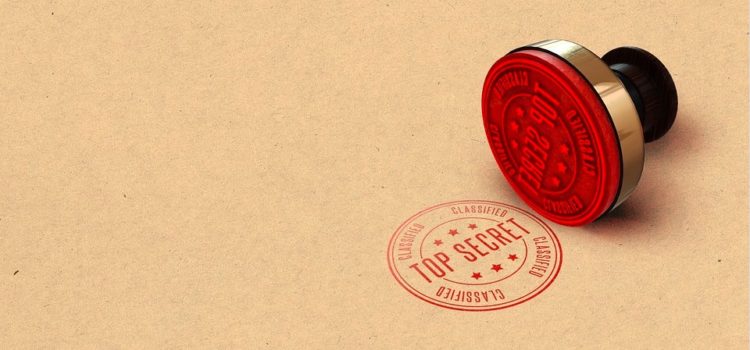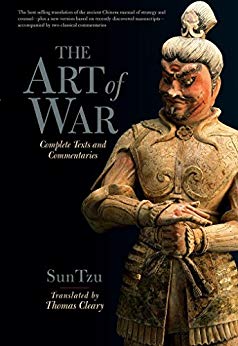

This article is an excerpt from the Shortform summary of "The Art of War" by Sun Tzu. Shortform has the world's best summaries of books you should be reading.
Like this article? Sign up for a free trial here .
In The Art of War, Sun Tzu advocated for the use of spies. What role do Sun Tzu’s spies play in battle? What are the different types?
We’ll cover the 5 types of Sun Tzu’s spies and how Sun Tzu suggests warriors use them to be victorious in battle.
Espionage At Your Disposal
Knowing your opponent is vital to any successful conflict outcome, and part of knowing your opponent is understanding their conditions. Therefore, people are the most reliable and gainful sources of intelligence about the enemy.
There are five types of Sun Tzu’s spies: the local spy, the inside spy, the reverse spy, the dead spy, and the living spy. Genius in strategy is when all five types of spies are in use and remain unknown to all but you.
Sun Tzu’s Local spies: Spies generated from the locals in any territory.
Sun Tzu’s Inside spies: Spies currently serving as executives in the enemy’s ranks.
- There may be disgruntled officials within the opponent’s ranks, those overlooked for promotion, those laid off, those unfairly treated or punished, and those who are overly ambitious and greedy.
- Some inside spies will be people who wish to push their own agendas or jump ship before their side is defeated.
- Some are just untrustworthy or conniving people.
- Some may be relatives of mistreated or condemned officials.
- These people can be turned with a bribe or promise of personal gain.
- Once turned, their benefit comes in alerting you to enemy strategies, conditions, and advancements against you. Or, you can use them to drive wedges inside the enemy’s ranks.
Sun Tzu’s Reverse spies: Enemy spies who have been pinched and rehabilitated.
- If you can bribe enemy spies and treat them more humanely than their leaders treat them, you can create a double agent to use to your benefit.
- Reverse spies can be enticed into sharing secrets or carrying fraudulent information back to their leadership.
Sun Tzu’s Dead spies: Spies you use to provide the enemy with false information.
- Dead spies are manipulated by you to spill bad information to the enemy.
- Once the enemy discovers the information is fraudulent, the spy will undoubtedly be killed.
Sun Tzu’s Living spies: Spies who gather information and return to your basecamp to report.
- The best living spies are those who appear innocent and simple but are in fact cunning and clever.
- These spies should be forgettable on the outside but stalwart on the inside.
- They should be courageous, trustworthy, immune to flattery and persuasion, and able to overcome a variety of negative conditions, whether personal, natural, or psychological in nature.
The Role of the Sun Tzu Spy
The secrecy involved with using and maintaining spies is on par with the necessary secrecy of strategy. Sun Tzu’s spies are some of the most cherished and rewarded individuals among the ranks, for their contribution is vital. Therefore, it is imperative to treat spies well so as not to entice them to revert to reverse spies for the enemy.
There is a mutual understanding between a good leader and a spy, according to Sun Tzu.
- A job well done will garner the spy rich rewards.
- A failed job will lead to the spy’s death.
- If information is received before a spy returns with the information, both the spy and the messenger should be killed.
Likewise, Sun Tzu’s spies are only as good as the intelligence of the people who govern them.
- A successful spy is one provided informed orders, so do not use spies when you lack sufficient knowledge of the enemy.
When you are ready to attack or advance, use spies to provide the required information about the players involved on the enemy’s side.
Use Sun Tzu’s reverse spies to inform actions regarding other spies.
- Reverse spies can provide intel on locals who are willing to inform on the enemy or simply greedy, thus easily persuaded to join forces with you.
- Reverse spies can tell you how to manipulate the enemy.
- This information allows you to understand what information to send through dead spies.
- Reverse spies also provide information on the conditions of the enemy.
- This information allows living spies to traverse enemy territory successfully and return home.
All other brands of subterfuge are possible through information gleaned from reverse spies. This is why reverse spies are the most advantageous and should be rewarded the best.
The use of spies is not a choice but a necessity. A good leader knows who to use and how to use them with a high level of intelligence.
- The necessity comes from the need to know the enemy as you know yourself.
- This type of inside information cannot be achieved to a satisfactory degree through any other means but espionage.
Historical Example: The Benefit of Reverse Spies
During the sixth century, there was a general of the court of Zhou who was well-liked, charismatic, and good at his job. He employed many spies within the court of Qi and the Qi community, and his generosity and benevolence made them loyal. Therefore, Zhou knew everything that was happening in Qi.
The Zhou general devised a plan to plant a song within the Qi kingdom that suggested the prime minister of Qi was planning a coup against his military. A Qi spy helped spread the song, and a rift grew between the prime minister and a Qi general, leading to the former’s execution. Once the Zhou general learned of the execution, he launched an attack against the Qi kingdom and destroyed it.
———End of Preview———

Like what you just read? Read the rest of the world's best summary of "The Art of War" at Shortform . Learn the book's critical concepts in 20 minutes or less .
Here's what you'll find in our full The Art of War summary :
- How to mislead your enemies to win the war
- Classic examples from Chinese history to illustrate Sun Tzu's strategies
- How to use spies to gather information and defeat your opponents






